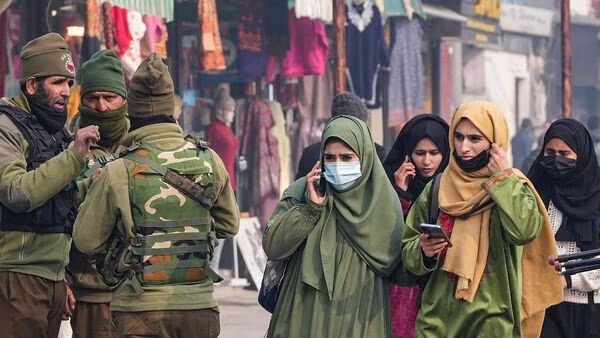In a historic ruling, the Constitution bench of the Supreme Court has delivered its verdict on a series of petitions challenging the abrogation of Article 370 and the bifurcation of the erstwhile state of Jammu and Kashmir into two Union territories. The landmark judgment, pronounced by a five-judge bench comprising Chief Justice of India DY Chandrachud, Justices Sanjay Kishan Kaul, Sanjiv Khanna, BR Gavai, and Surya Kant, has far-reaching implications for the region and the nation as a whole.
The top court, in its decision, upheld the government’s decision to abrogate Article 370, a move that took place on August 5, 2019. Article 370, considered an interim arrangement due to war conditions in the erstwhile state, has been a long-standing and contentious issue. Justice Chandrachud, delivering the verdict, emphasized the historical context underpinning the abrogation.
Additionally, the Supreme Court endorsed the reorganization of Ladakh as a Union Territory, supporting the government’s move in this regard. The bifurcation of the region into Jammu and Kashmir as one Union Territory and Ladakh as another was a significant step, altering the political landscape.
One of the key directives arising from the judgment is the court’s call for steps to be taken to conduct elections in the Jammu and Kashmir assembly by September 30 of the following year. This timeline sets the stage for the restoration of democratic processes in the region, allowing the residents to actively participate in shaping their governance.
The verdict comes after a comprehensive hearing that spanned 16 days, during which the court carefully considered the arguments presented before it. The decision to uphold the abrogation of Article 370 and the reorganization of the region is expected to have a profound impact on the socio-political dynamics of Jammu and Kashmir.
In a related development, the government is gearing up to introduce two bills in Parliament, aiming to reserve 33% of seats for women in the assemblies of Union Territories of Jammu and Kashmir and Puducherry. This move aligns with the broader national agenda of promoting gender equality and empowering women in the political sphere. In September, Parliament had passed the Nari Shakti Vandan Adhiniyam, laying the groundwork for one-third reservation for women in Lok Sabha and Assemblies. The effective implementation of this provision is contingent on a delimitation exercise slated for 2029.
The Supreme Court’s verdict and the government’s proposed bills underscore the evolving political landscape in the region, indicating a commitment to democratic values and inclusive governance. The decision to abrogate Article 370, while rooted in historical considerations, sets the stage for a new chapter in the political narrative of Jammu and Kashmir. As the region prepares for upcoming elections, the focus will be on the restoration of democratic processes and the active participation of its residents in shaping their future. The developments hold significance not only for Jammu and Kashmir but also for the larger national discourse on constitutional matters and governance.


